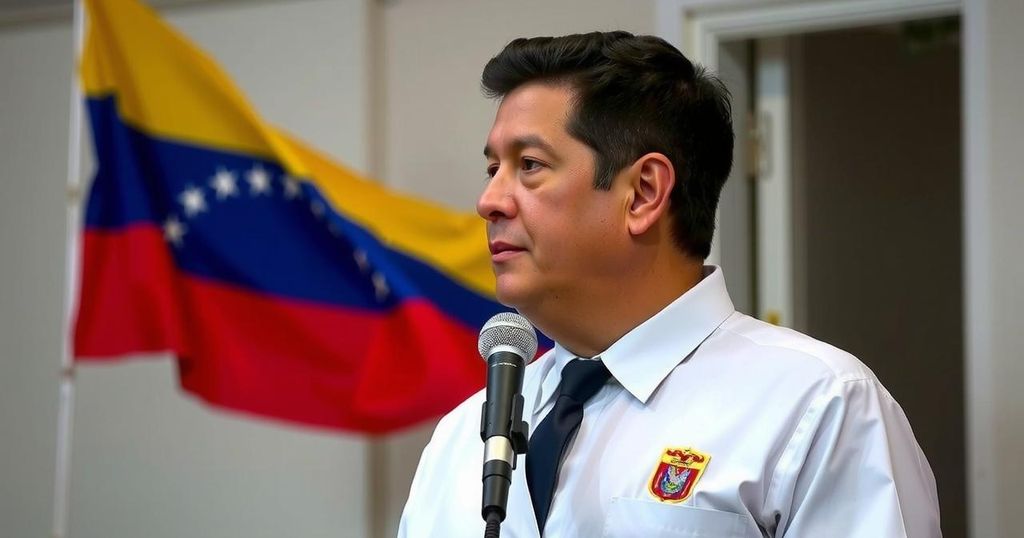The Venezuelan government rebuked U.S. intervention by rejecting Edmundo González’s recognition as president-elect while severing ties with Paraguay. President Maduro prepares for his inauguration amidst protests and charges against González. The situation reflects a significant political divide fueled by foreign interests and internal strife.
The Venezuelan government has strongly opposed the recent recognition of Edmundo González Urrutia by the Biden administration as the “president-elect.” In a statement released by the Venezuelan Foreign Ministry, it condemned the interventionist strategies employed by the United States as outdated and ineffective. The communiqué articulated that the Venezuelan people’s democratic choice had been disregarded, labelling the Biden administration as “decrepit” and asserting that attempts to manipulate the political landscape would be met with steadfast resistance.
In response to the U.S. endorsement of González, who is positioned as a former opposition candidate, President Nicolás Maduro’s administration emphasized its commitment to safeguarding national stability and sovereignty. Biden’s support was juxtaposed against the legacy of failure left by his administration, which Venezuela claims includes insufficient acknowledgment of domestic realities. González has initiated dialogues in Washington regarding the restoration of democracy in Venezuela, but he faces legal challenges and a potential arrest warrant upon his return to the country.
Concurrently, Venezuela severed diplomatic relations with Paraguay after Paraguayan President Santiago Peña affirmed his support for González. This move indicates a broader tension within South America, as nations grapple with differing stances regarding Venezuelan governance. Furthermore, weeks ahead of Maduro’s planned inauguration for his third term, opposition groups are organizing protests, showcasing a deepening political divide within Venezuela itself. Overall, the ongoing conflict between the current government and the opposition, along with foreign interventions, intensifies the complex socio-political dynamics affecting Venezuela today.
This article outlines the current political tensions in Venezuela following the recent election and the responses from both the Venezuelan government and international actors, specifically the United States. Following the election of Nicolás Maduro amid controversy, Edmundo González, a former opposition candidate, has received support from U.S. President Joe Biden, leading to a diplomatic crisis with Venezuela and Paraguay. The article discusses the implications of these developments for Venezuela’s sovereignty, the opposition’s claims, and the overall stability of the region.
In summary, the Venezuelan government has firmly rejected the United States’ recognition of Edmundo González as the elected president, asserting that foreign intervention undermines its sovereignty. The situation is further complicated by the severed diplomatic ties with Paraguay, highlighting regional tensions. As President Maduro prepares for his inauguration, the divide between government and opposition factions continues to grow, with potential implications for Venezuela’s future political landscape.
Original Source: venezuelanalysis.com






